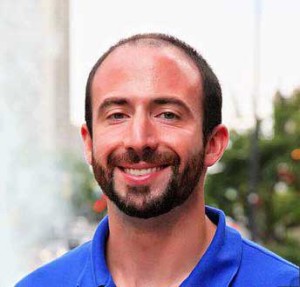Climate change is real, and now we have to answer tough questions
By Michael Hays, Guest Columnist, The Times
Who knew that time off could be so alarming.
Last month, I took an extended vacation to spend time with family in Sea Isle City, New Jersey, and hike parts of western Oregon – solo. The Atlantic-Pacific respite awakened me to the potentially devastating impact of rising ocean levels on our communities and way of life.
New Jersey is recovering quite well from 2012’s Hurricane Sandy. The Garden State and Gov. Christie are both “stronger than the storm,” but how many bay and shoreline neighborhoods will be habitable if rises in sea levels match forecasts?
Kate Sheppard reported last month in Mother Jones magazine that about 123 million Americans dwell in coastal counties. Furthermore, 50 percent of the nation’s shorelines are vulnerable to sea level increases. Studies project a rise of three to six feet by the end of this century, according to researcher and author Lester Brown. (During all of the 20th Century, sea levels rose a total of seven inches.)
In dollars, failure to mitigate the damages caused by climate change could cost New Jersey $38.9 billion between 2010 and 2050, according to the American Security Project. Pennsylvania’s projection is over $64 billion.
Out West, I picked up a rental car in Portland and headed for Mount Hood and the Columbia Gorge. These were some of the most scenic and beautiful drives of my life. Hiking to the top of Multnomah Falls is an experience to cherish.
Washington and Oregon are known for apples, cherries, berries, salmon, and other foods. According to Brown, one out of the five rivers in the Pacific Northwest will be too hot for salmon, steelhead, and trout by 2040. And fruit? Snow pack is crucial to supplying rivers with fresh water needed for irrigation in many states.
While on travel, I read the terrible news of 19 firefighters dying in Prescott, Ariz., while they battled a surging wildfire. Sadly, these raging infernos are likely to become more common. A temperature increase of 1.6 degrees (Celsius) could double the area of wildfires in the 11 western states, according to Brown.
These are just some of the consequences of a changing planet. Solutions will require national sacrifices and difficult choices from our elected leaders.
Every effort must be made to hold temperature increases to 2 degrees (Celsius) above pre-industrial level, according to an independent report issued before the 2009 climate talks in Copenhagen. To accomplish this goal, scientists say carbon dioxide – a key greenhouse gas – should be reduced by 60 to 80 percent. If nothing else, emissions should peak in the near future to avoid dire consequences. (Go to www.350.org for more information on this topic.)
My translation: No more coal. Renewables – especially wind and solar – are the key. I am even willing to live with natural gas as a “bridge fuel” to get us to the day when green technology powers most of our economy.
Here’s a pickle for the budget hawks on Capitol Hill: What do you do about the ballooning payouts to homeowners through the National Flood Insurance Program? The program was projected to run up $25 billion in debt after Sandy.
Congressman Earl Blumenauer (D-Ore.) proposed a “Two Floods and You’re Out of the Taxpayers’ Pocket Act” in 1999. It went nowhere. But in the decades ahead, politicians will have to grapple with the economic and emotional conundrum of whether to rebuild after major storms.
FEMA offers a grant program that helps pay for lifting homes up and away from floodwaters. This is one of the few climate-mitigating efforts of the federal government, according to Sheppard. That will not suffice in the years ahead.
I hope the coastlines of the United States are around for centuries to come for all to enjoy. However, as the climate around us changes, we must be willing to confront difficult questions.
Email vacation ideas to me at mhays422@gmail.com
Michael Hays is a former journalist for The Pottstown Mercury who now serves as a member of Borough Council in Spring City. He was the Democratic candidate for State Representative in the 26th District in 2012.







